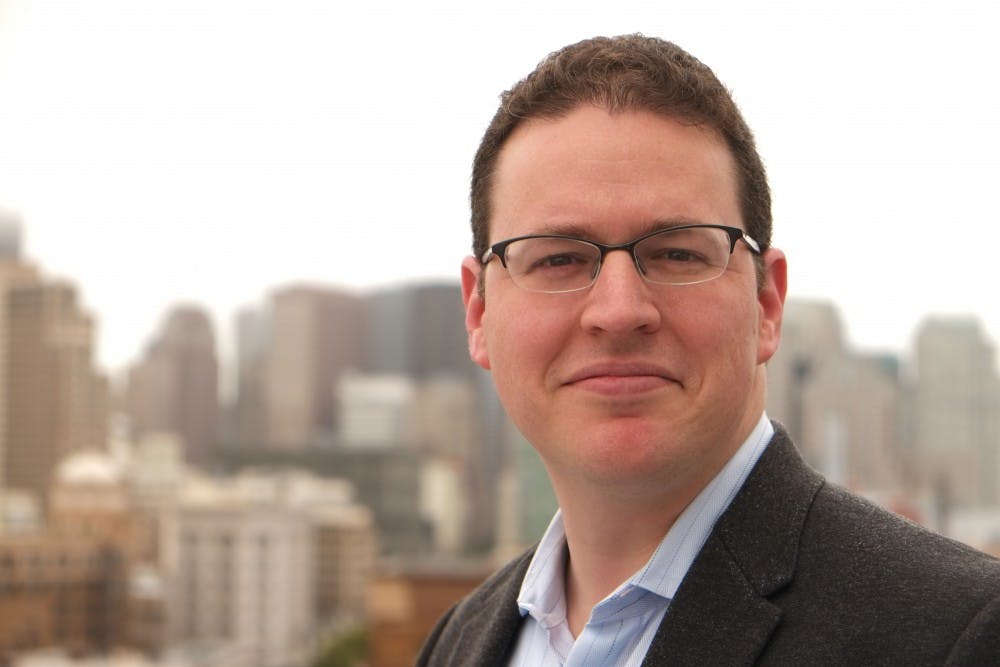Ironically, it was a class at Penn that led 1997 Wharton graduate Ben Nelson to develop an alternative to the traditional leading universities.
The former president and CEO of photo-printing service Snapfish, Nelson is now the founder and CEO of the Minerva Project. Aimed at creating a truly student-centric institution, Minerva welcomed its inaugural class of 28 freshmen this past fall.
Nelson traces the roots of his idea for Minerva back to an undergraduate class he took with Associate Vice President and Director of the Netter Center Ira Harkavy in which students were challenged to reimagine how universities engage with their communities.
“As I was taking the course, I realized that by far the most important engagement with a community is how [the university] engages with a society more broadly,” Nelson said.
Committed to this idea, Nelson wrote a paper that encouraged Penn to institute a core curriculum and “breathe intellectual life back into the University.” Nelson took over as chair of the Student Committee on Undergraduate Education, but he soon learned that change would not come easily. He believed that universities simply had no incentives to reform.
Nelson felt schools were competing on largely irrelevant factors, such as how many Nobel Prize winners they had in their faculties or how nice their campuses were.
“We don’t go to the place because it will educate us better,” Nelson said. “We go to the place because we like all of this circus nonsense.”
Frustrated by the nonsense, Nelson threw in his towel on education reform and went into the business world upon graduating from Penn. But he never fully closed the door on his desire to change how universities teach.
“A few years ago, after not being able to let go of these initial ideas and having some real luck in the business world, I realized that in the next chapter of my life what I wanted to do was do something that actually had broad-based impact,” Nelson said about his decision to launch his own for-profit institution of higher education.
He was confident that he could establish an institution that would not be pressured by the political environment of existing universities and would serve as a prototype for others to follow.
“I realized that the best way to get the Ivy League to reform was to create a new peer institution,” Nelson said.
Minerva is a global online school with small seminars that students can take around the world. At the moment, Minerva only has a residence hall in San Francisco but plans to expand so that each student can choose seven cities around the world to live in before they graduate.
Or Segal is one of the 28 members of Minerva’s founding class. After completing his required service in the Israel Defense Forces, Segal enrolled at Tel Aviv University, but felt something was missing. A friend sent him the link to Minerva’s website, and he felt it was a perfect match.
“I prefer not to stay in a protected environment, but to let myself grow and find my direction. I knew that part of being in the founding class was that I was going somewhere that I didn’t necessarily know where it would take me, but it’s part of the experience,” Segal said of his decision to be one of the 2,454 students who applied for admission to Minerva.
Segal was among the 2.8 percent of applicants selected from around the world and among the many who had applied from traditional four-year institutions.
“Last year we had several dozen students from the top 25 universities in the United States apply for admission to Minerva — including several from the University of Pennsylvania,” Nelson said. “Of those several dozen, three made our qualification bar and were admitted.”
While he is committed to pushing institutions of higher education to change the way they educate their students, Nelson does give credit where credit is due.
“As much as Penn needs to fix a lot of things, I do think that there should be deserved pride that an idea like Minerva was really born and incubated at Penn,” he said.



